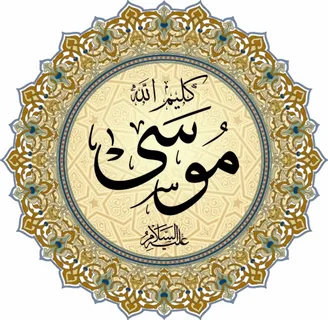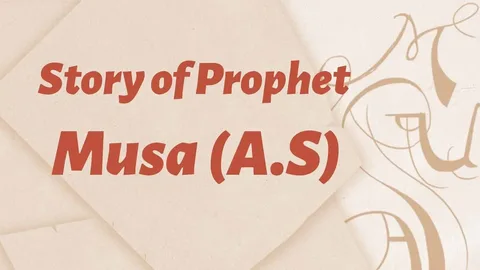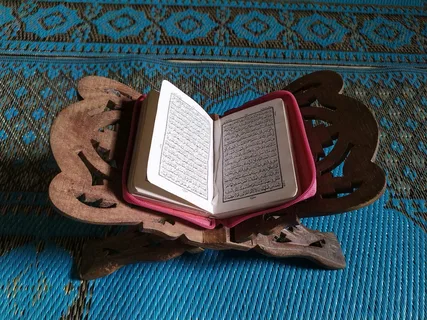The story of Musa in Quran is one of profound significance, portraying the journey of a remarkable prophet chosen by Allah to deliver his message to the people. Musa, also known as Moses, holds a central role in Islamic tradition, revered for his steadfastness, wisdom, and unwavering faith.
The story of Musa in Quran

The story of Musa (Moses) in the Quran is one of the most revered and significant narratives within Islamic tradition. It is a tale of divine intervention, resilience, and leadership that continues to inspire millions of believers around the world, this story following stages include
Musa in the Quran
Musa’s narrative begins with his birth during a time when Pharaoh, the ruler of Egypt, had ordered the killing of all male Israelite infants due to a prophecy of his downfall at the hands of a child from among them. To safeguard Musa, his mother places him in a basket and sets it adrift on the Nile River. Providentially, Pharaoh’s wife discovers the infant and adopts him, unaware of his true lineage.
Birth and Early Life of Musa
Raised in the opulence of Pharaoh’s palace, Musa grows up unaware of his Israelite heritage. However, as he reaches adulthood, he becomes aware of his true identity and the oppression faced by his people. Witnessing an Egyptian taskmaster abusing an Israelite, Musa intervenes, inadvertently killing the taskmaster and prompting his flight from Egypt.
Musa’s Call to Prophethood
The story of Moses’ (Musa’s) call to prophethood is narrated in several places in the Quran. One significant account is found in Surah Ta-Ha (Chapter 20), where Moses encounters the burning bush on Mount Sinai and receives his divine commission. Here are the key points:
- The Burning Bush: Moses, while tending to his sheep, sees a fire on the side of the Mount Sinai. As he approaches it, he hears a voice calling out to him from within the fire. In Surah Ta-Ha, verses 9-10, God instructs Moses to remove his sandals because he is in the sacred valley of Tuwa.
- Divine Revelation: God speaks to Moses, revealing Himself as the Lord of the worlds and instructing Moses to fulfill his mission as a prophet. In verses 12-14, God commands Moses to go to Pharaoh and deliver His message to him, to free the Israelites from oppression.
- Moses’ Reluctance: Initially, Moses expresses reluctance and concern about his ability to convey the message effectively, citing his stuttering speech and the potential consequences of his mission. However, God reassures Moses of His support and guidance.
- Miraculous Signs: To demonstrate His authority and empower Moses, God grants him several miracles, including the staff that transforms into a serpent and his hand becoming radiant. These miracles serve as signs of God’s presence and confirmation of Moses’ prophethood.
- Aaron as a Helper: At Moses’ request for assistance, God appoints his brother Aaron (Harun) as a prophet and a helper to strengthen him in his mission (Surah Ta-Ha, verse 29).
The Plagues and Miracles
Armed with divine signs, Musa confronts Pharaoh, demanding the release of the Israelites. In response to Pharaoh’s obstinacy, Allah sends a series of plagues upon Egypt, including locusts, frogs, and the turning of the Nile to blood. Through these miracles, Musa demonstrates the power and authority of Allah.
Escape from Egypt
Following the culmination of the plagues, Pharaoh reluctantly agrees to release the Israelites. However, he soon regrets his decision and pursues them with his army. Trapped between the Red Sea and Pharaoh’s forces, Musa raises his staff, parting the sea to allow safe passage for the Israelites. As they cross to safety, the waters close in on Pharaoh’s army, drowning them.
Recommend: stories of quran
The Revelation of the Torah
Upon reaching Mount Sinai, Musa ascends to receive the Torah directly from Allah. The revelation of the divine scripture marks a pivotal moment in Musa’s prophetic mission, providing guidance and laws for the Israelites to follow.
Musa’s Leadership and Trials
As leader of the Israelites, Musa faces numerous challenges and trials, including internal dissension and external threats. Throughout these tribulations, Musa remains steadfast in his faith and commitment to Allah, guiding his people with wisdom and compassion.
Musa’s Legacy
The story of Musa concludes with his eventual passing, leaving behind a legacy of faith, perseverance, and devotion to Allah. His teachings continue to inspire millions of believers worldwide, serving as a timeless reminder of the power of faith and the importance of standing against oppression.
Read more: quran first ayat
The story of Moses (Musa in Arabic) is a significant narrative in the Quran, spanning several chapters. Here are some key Quranic verses related to the story of Moses:
- Moses’ Birth and Childhood: Surah Al-Qasas (Chapter 28), verses 7-13 narrate the story of Moses’ birth, his being placed in the river, and his adoption by Pharaoh’s family.
- Moses’ Encounter with God at Mount Sinai: Surah Taha (Chapter 20), verses 9-12 describe Moses’ encounter with the burning bush and his mission to free the Israelites from oppression.
- Moses’ Struggle Against Pharaoh: Surah Al-A’raf (Chapter 7), verses 103-136 recount Moses’ confrontation with Pharaoh and the various miracles shown by God through him, Surah Ash-Shu’ara (Chapter 26), verses 10-68 also describe the interactions between Moses and Pharaoh, including the miracles, dialogue, and eventual escape of the Israelites.
- The Exodus and Crossing of the Red Sea: Surah Ash-Shu’ara (Chapter 26), verses 52-68 and Surah Al-Qasas (Chapter 28), verses 39-42 mention the crossing of the Red Sea by Moses and the Israelites.
- Receiving the Torah (Tawrat): Various verses in Surah Al-Baqarah (Chapter 2), Surah Al-A’raf (Chapter 7), and Surah Al-Ma’idah (Chapter 5) refer to Moses receiving the Torah and guidance for his people.
FAQs
Was Musa the only prophet mentioned in the Quran?
No, Musa is one of the many prophets mentioned in the Quran, including Adam, Noah, Abraham, and Muhammad.
What significance do the miracles of Musa hold in Islamic belief?
The miracles of Musa serve as proof of his prophethood and the divine support he received from Allah in delivering his message.
How is Musa's story similar to and different from his portrayal in other religious texts?
While Musa's story shares similarities with its portrayal in other religious texts such as the Bible, the Quran provides unique insights and perspectives on his life and mission.
What lessons can be learned from Musa's encounter with Pharaoh?
Musa's confrontation with Pharaoh teaches the importance of standing up against injustice and oppression, even in the face of seemingly insurmountable odds.
How does Musa's legacy continue to influence contemporary Islamic thought and practice?
Musa's teachings on faith, righteousness, and social justice continue to inspire Muslims worldwide, shaping their beliefs and actions in accordance with Islamic principles.
Conclusion
The story of Musa in the Quran is a testament to the enduring power of faith and the unwavering commitment of Allah to guide and protect those who believe in Him. Musa’s journey from humble beginnings to becoming a revered prophet exemplifies the triumph of righteousness over tyranny and the ultimate victory of truth.



